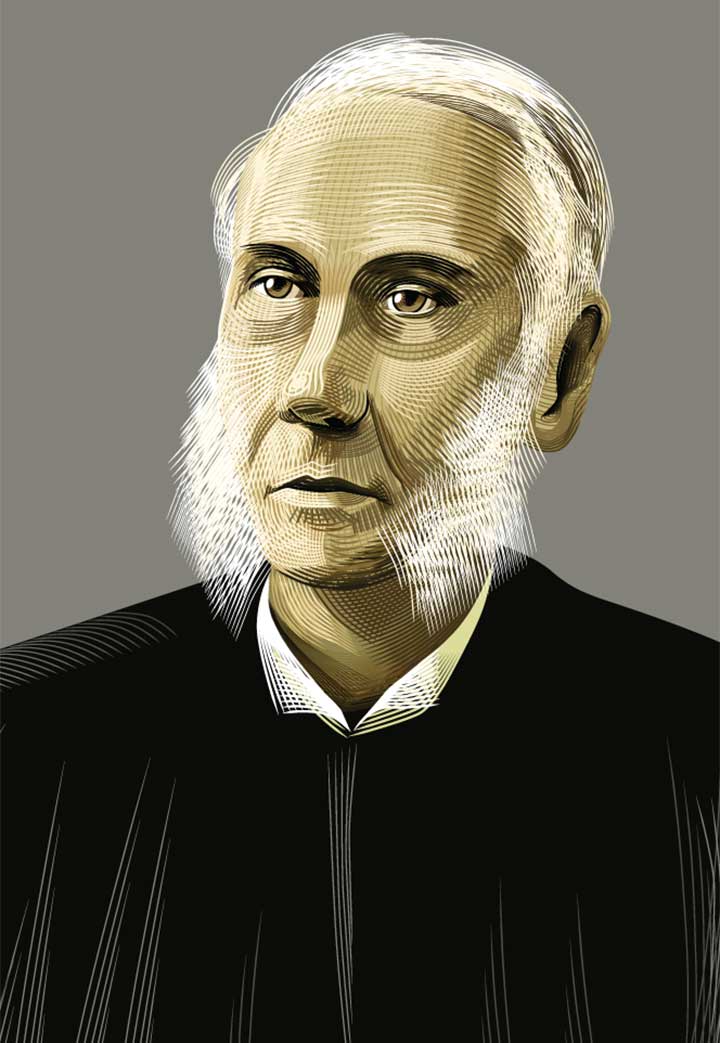James Ormesbee Murray was the very first dean at the College of New Jersey. Well, somebody had to do it. A minister by training, Murray jumped at the College’s call in 1875 to teach the good word of Shakespeare and Wordsworth alongside the scriptural classics. He loved literature and never willingly missed the opportunity to teach a course. But in 1883, when President James McCosh decided the College needed more guiding hands, Murray found himself summoned to another call. McCosh’s successor, Francis Patton, explained why, with an air of long-suffering endurance as an administrator: “Dr. Murray was not allowed to devote himself exclusively, as he would have been glad to do, to a literary life. He had to pay the penalty of being able to do more than one thing well by having more than one thing to do.”
Murray’s most enduring contribution as dean was, without doubt, the creation of the honor system. This institution, the first in the Ivy League, arose after a group of students asked the administration in 1892 “to be put upon their honor as gentlemen” in exams, which they felt would fatally tarnish cheating — something so widespread that the Nassau Lit called it “general custom,” and a slang term, shenannygagging, existed to describe it. It was Murray, whose duties included judging disciplinary cases, who wrote up a resolution on the students’ behalf and presented it at a faculty meeting. It passed.
The honor system arose after a group of students asked the administration in 1892 “to be put upon their honor as gentlemen” in exams.
The honor system first entered practice at the mid-year exams in the spring of 1893. A student later wrote that Murray came to his classroom, handed out the exams, spoke a few mild words, and left — and that this simplicity, this forbearance to purple the air with warnings, was the strongest possible testimony for the new system: “I wonder, you later graduates, if you can grasp the dramatic force of that moment when after his brief words Dean Murray left us to ourselves. Hitherto exams had been conducted by the prof of the course sitting on a rostrum with eagle eyes watching us, while proctors walked the aisles.”
The students assembled an Honor Committee to adjudicate cases of possible cheating; it comprised two students from each class, singled out as men of ethics, pluck, and school spirit. (The first chairman of the Honor Committee was the leader of the Glee Club, which presumably made him the pluckiest, most spirited Princetonian.) The Daily Princetonian reported on each school that adopted an honor system of its own, with a sense of proprietary pride. In 1938, the Princetonian related a story, surely facetious, about an honor-code incident at the University of Wisconsin: “A professor was preparing to leave the classroom almost directly after he had placed an examination on the board. ‘Aren’t you afraid we will cheat?’ asked one of the students. ‘Oh, no,’ replied the professor. ‘You see, I have already turned in the grades.’”
Murray Hall is not named after Dean Murray, but for Hamilton Murray 1872. No matter. One alum noted in 1901 that the dean’s legacy is not in a building but in the University’s foundation, which is where the honor system is to be found.












No responses yet